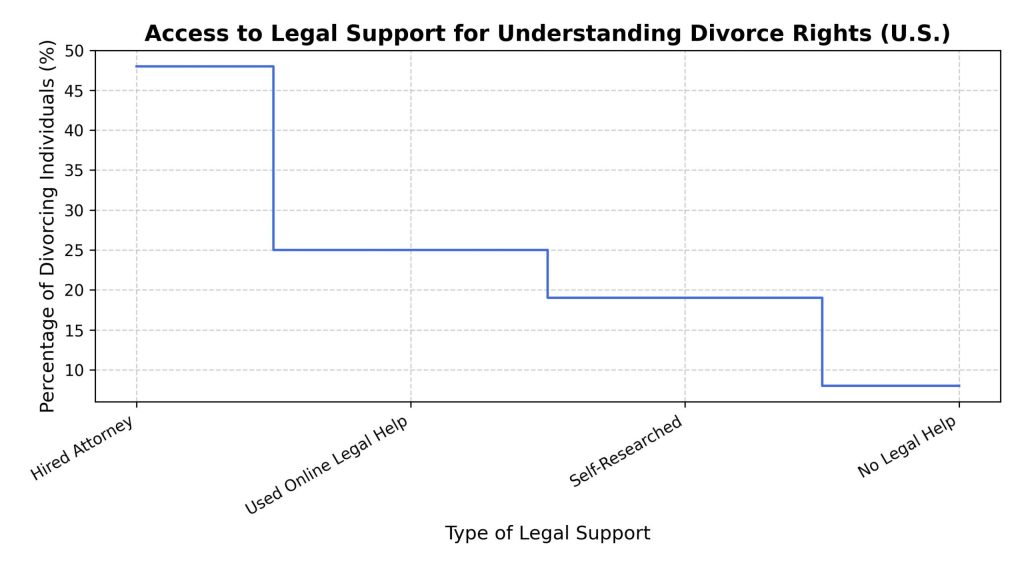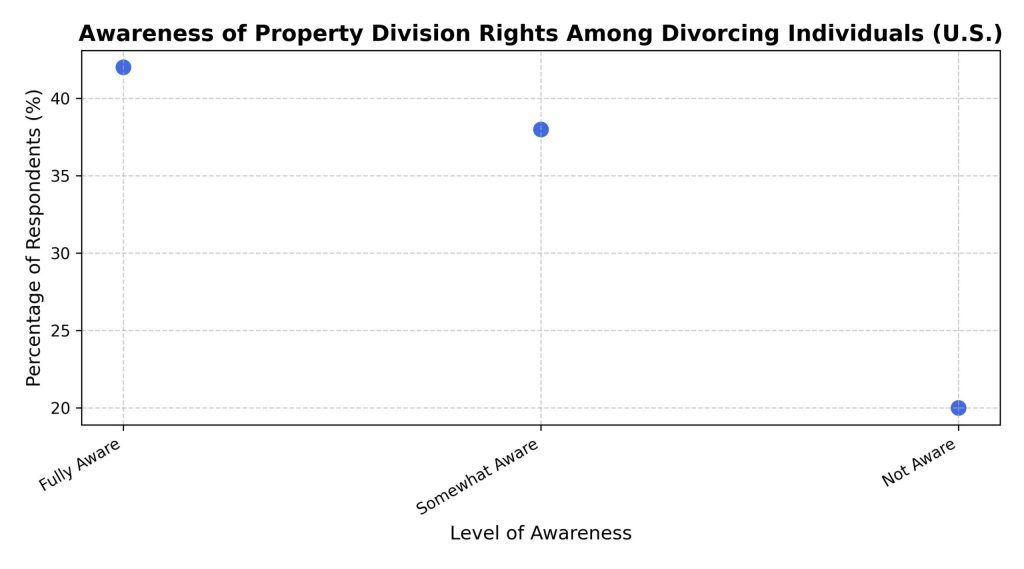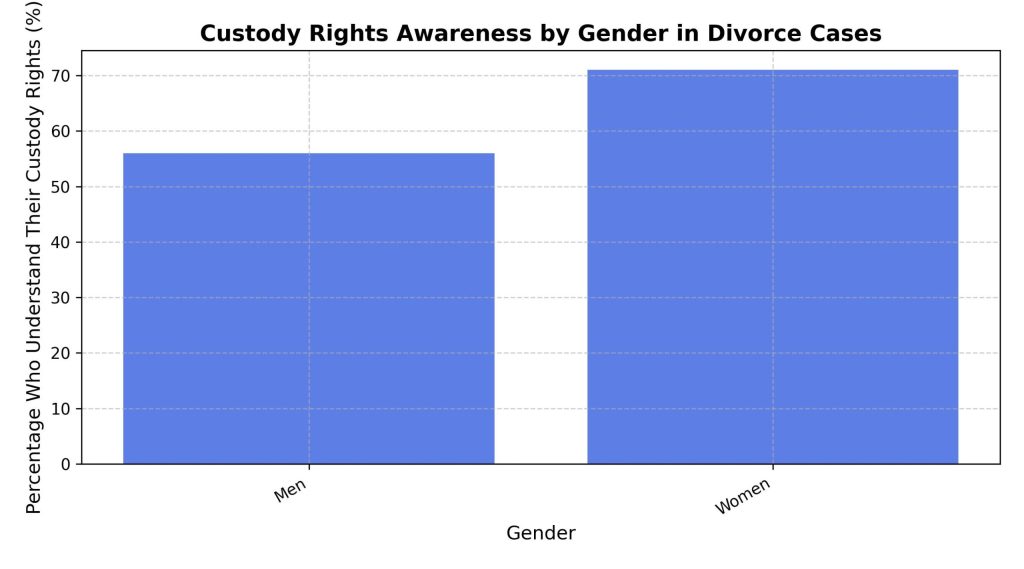What Are My Rights in a Divorce? A Complete Guide
In a divorce, your rights usually include sharing property, spousal support, child custody, and child support. These rights aim to ensure fair financial distribution and address children’s well-being. And another thing I didn’t expect, according to the book “Divorce and Family Law in a Nutshell” by John E. B. Myers, courts look at factors like marriage length, individual income, and children’s needs. Rights may vary by location, so it is important to check local laws.
If you really think about it, divorce can feel tough, but it also offers a chance to grow and start anew. While some focus on the positives, it’s easy to forget about the different legal and emotional issues that arise, and that almost explains it many don’t know about the rights they have during this time. You might worry if you’re doing everything right, unsure of what you’re entitled to. It’s normal to feel stressed by the emotional toll of the process, and this is partly why it’s important to take care of yourself and find balance. Wanting fair results for all is admirable, but don’t let legal details take over your healing. If you’re unsure of how you’re handling it, let’s talk about how to stay on the right track. There are steps you can take to make sure you’re doing what’s best for you and others involved. Hi, I’m Elizabeth Burnley, a paralegal expert, and today we’ll look at this topic, so feel free to reach out if you’re struggling.
Key Pointers
- In a divorce, you usually have rights concerning fair sharing of marital property, decisions about children, alimony, and child support.
- These rights can be different depending on where you live.
- According to “Divorce and Family Law” by Edward S. Snyder, you might also have rights about getting protection orders, using mediation, and negotiating agreements.
- It is a good idea to have a lawyer to help understand and use these rights well.
- Your rights are meant to ensure a fair outcome by looking at both people’s money and personal situations.

What Are the Legal Grounds for Divorce in My State?
If loving chips more than your spouse is grounds for divorce, your snack game might just land you in court!
Checking your state’s family law rules is important when figuring out legal reasons for divorce. Common reasons often include not getting along, cheating, leaving, or being mean. And the real crazy part is, each state may have specific requirements, so looking at your state’s laws is necessary.

Here is what people are usually saying on the internet about the legal grounds for divorce in different states:
“In most states, no-fault divorce is an option, which means you can simply state ‘irreconcilable differences’ as the reason for the divorce without having to prove any wrongdoing by your spouse.” – Lawyers.com
“Some states still allow fault-based divorces, where you need to prove grounds like adultery, desertion, or cruelty. It can be more complicated but sometimes necessary for financial or personal reasons.” – DivorceNet
“It’s essential to understand that legal grounds for divorce can vary significantly across different states, so consulting with a local attorney or checking your state’s specific laws is very important.” – Nolo.com
How Are Assets and Debts Divided During a Divorce?
In a divorce, assets and debts are often split either by community property rules, which mean a 50/50 split, or by fair division rules, which divide things in a way that is fair but not always equal, based on things like each person’s income and how long the marriage lasted. I did note about how are assets and debts divided during a divorce? at the start, but let me go over it again in more detail now. It is usual to think about how these will be divided because knowing your financial future is key, and being ready for what to expect can lessen stress and make the process feel more manageable, so I figured it was worth saying out loud.

According to legal experts on Nolo.org, property and money owed in a divorce are usually divided based on state laws. Honestly, what’s wild about this is, the division aims to ensure a fair split, whether through shared property or fair distribution. Key points include:
- Listing all property and money owed.
- Figuring out the worth of the property.
- Thinking about each partner’s money needs and what they’ve contributed.
- Working out a fair split or having a court decide.
Might this tell us something new? People are saying that during a divorce, splitting assets and debts is causing stress and worry. Lawyers are stepping in to help, showing that the legal system is trying to be fair, but it often feels confusing.

If you’re curious about your rights in a divorce, look no further than our Complete Guide, and take the next step with https://edivorcepapers.com for your divorce paperwork needs. This website offers a quick and easy service to help you prepare your legal documents for divorce. By using this platform, you get a stress-free and affordable way to handle your divorce paperwork from home.
Let’s check how are assets and debts divided during a divorce? from a fresh side right now and see what shows up. People often think that things are always split evenly in a divorce, but that’s not always true. Some people might find other ways, like talking it out, to split what they own based on what feels fair. It seems wise to be careful and know your rights, since not knowing could cause problems, in reality.
What Rights Do I Have Regarding Child Custody and Support?
As stated by trusted sources like the American Bar Association, parents have certain rights in child custody and support issues. These include:
- the right to ask for custody or visitation,
- the right to get child support if you are the custodial parent,
- the right to ask for changes to custody or support plans, and
- the right to have decisions checked by a court.
You have the right to ask for custody or time with your child. Courts decide based on what’s best for the child. It’s important to talk to a family law lawyer for personal advice. They can help you understand your rights and duties.
To Wrap it All Up
In looking at “What Are My Rights in a Divorce? A Complete Guide,” it’s clear that knowing your legal rights is very important for going through the various issues that may come up during divorce proceedings. While this process can be difficult, it represents a step to a new start and the chance to build a life that matches your future goals. To make informed decisions, think about talking to a skilled lawyer who can give personalized advice suited to your situation. As you move forward, you might find it helpful to check out our article on post-divorce financial planning to ensure a stable and secure future.







